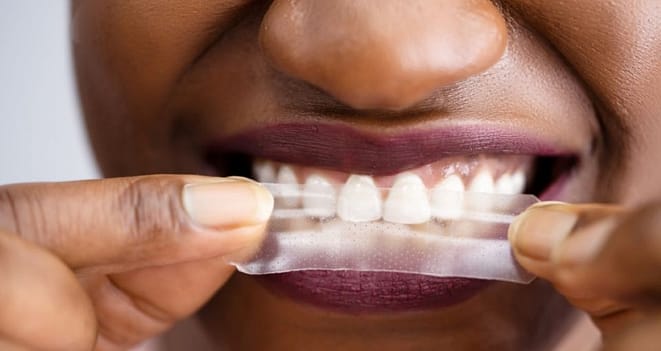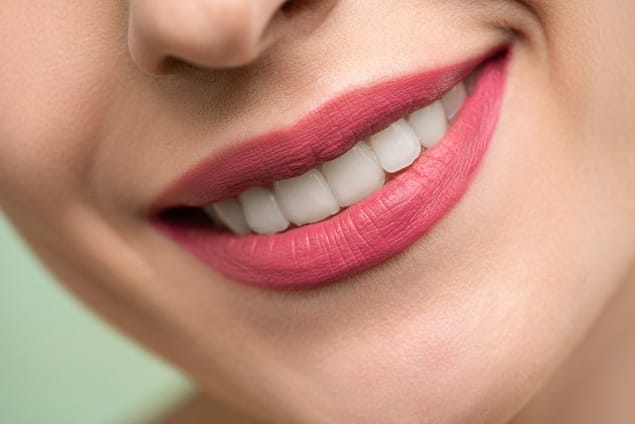Are you constantly searching for the best way to achieve a brighter smile? Look no further than teeth whitening strips! With numerous options available in the market, it’s natural to wonder: “Do teeth whitening strips really work?”
In this article, we will explore the effectiveness of these whitening strips, providing you with all the necessary information to make an informed decision. From addressing frequently asked questions to drawing a conclusive answer, get ready to uncover the truth behind teeth whitening strips and their ability to transform your smile.
Why Do People Want Whiter Teeth?
Desire for a Brighter Smile
A white, bright smile is often associated with beauty and good oral hygiene. It’s no surprise that many people desire whiter teeth. Having stained or discolored teeth can affect one’s self-confidence and even impact social interactions. A brighter smile can boost self-esteem and make you feel more attractive.
Social and Psychological Factors
In today’s society, where appearance plays a significant role, having whiter teeth has become increasingly important. People often want to make a good first impression, and a beautiful smile can be a key factor in achieving that. Whiter teeth can also contribute to a more youthful appearance, making people feel more confident and happier in their daily lives.
How Do Teeth Whitening Strips Work?

Active Ingredients in Whitening Strips
Teeth whitening strips contain active ingredients that help remove stains and discoloration. The most commonly used ingredients are hydrogen peroxide and carbamide peroxide. These bleaching agents penetrate the enamel surface and break down the stains, resulting in a whiter appearance.
Mechanism of Action
Teeth whitening strips are designed to be applied directly onto the teeth. The peroxide in the strips reacts with the stains and oxidizes them, breaking down the molecules responsible for discoloration. This process helps to remove both extrinsic (surface) and intrinsic (internal) stains, resulting in a visibly whiter smile.
Are Teeth Whitening Strips Effective?
Clinical Studies on Whitening Strips
Several clinical studies have shown that teeth whitening strips can be effective in achieving a whiter smile. These studies evaluate the efficacy of different brands and formulations of whitening strips. Results have shown that when used as directed, whitening strips can significantly lighten the shade of teeth and improve overall tooth appearance.
Comparison with Other Whitening Methods
While teeth whitening strips are effective, it’s important to note that the results may vary depending on the severity of the stains and the individual’s oral health. Professional teeth whitening treatments performed by a dentist can provide more immediate and dramatic results. However, these treatments can be more expensive and may require multiple visits. Whitening strips offer a more convenient and affordable alternative for those seeking a gradual improvement in teeth color.
Also Check: Tips On How To Stop Sensitive Teeth Pain Immediately
Types of Teeth Whitening Strips
Over-the-Counter Whitening Strips
Over-the-counter whitening strips are readily available in most drugstores and supermarkets. They are generally affordable and easy to use, making them a popular choice for many people. These strips usually come in kits with different treatments, allowing flexibility in choosing the duration and frequency of application.
Professional Whitening Strips
Professional whitening strips are often used and recommended by dentists. These strips are usually stronger and more effective, as they contain higher concentrations of whitening agents. They may also come with additional features such as customized trays to ensure a precise fit and better results. Professional whitening strips may be more expensive but can offer enhanced whitening effects.
Proper Usage and Application
Instructions for Using Whitening Strips
It is crucial to follow the instructions provided with the teeth whitening strips. Typically, the steps involve:
- Brushing and flossing your teeth before applying the strips.
- Peeling off the backing from the strip and applying it to your teeth, ensuring it adheres to the surface.
- Leaving the strip on for the recommended amount of time (specified in the instructions).
- Removing and discarding the strip after the designated time.
- Rinsing your mouth thoroughly to remove any residue.
Potential Side Effects
While teeth whitening strips are generally safe to use, some individuals may experience temporary side effects. These can include tooth sensitivity or gum irritation. The sensitivity usually subsides after a few days, but if irritation persists, it is advisable to discontinue use and consult a dentist. It is essential to use the strips as directed and avoid prolonged or excessive use to minimize the risk of side effects.

Source: Pexels.com
Cost and Accessibility
Price Range of Whitening Strips
Over-the-counter teeth whitening strips are available at various price points, ranging from affordable options to more premium brands. The cost can depend on factors such as the brand, the number of treatments included, and the formulation. Professional whitening strips offered by dental professionals often come at a higher cost but may offer enhanced results.
Availability and Convenience
Teeth whitening strips are widely accessible and can be found in most drugstores, supermarkets, and online retailers. Their ease of use and convenience make them a popular choice for individuals who prefer at-home whitening treatments. With the availability of different brands and formulations, individuals can choose the most suitable option for their needs and budget.
Alternatives to Teeth Whitening Strips
Professional Teeth Whitening
For individuals seeking immediate and more significant whitening results, professional teeth whitening treatments performed by a dentist are a highly effective option. These treatments often involve the use of stronger whitening agents and may utilize specialized techniques such as laser or light activation for accelerated results. However, professional treatments are typically more expensive than at-home options.
Natural Remedies
Some people prefer natural remedies for teeth whitening. These include methods such as brushing with baking soda, using hydrogen peroxide as a mouthwash, or applying activated charcoal to the teeth. While these natural remedies may show some results, they are generally less effective than whitening strips or professional treatments and may not be as thoroughly evaluated for safety and efficacy.
Source: TheTechBrain AI
Long-Term Effects and Maintenance
Duration of Whitening Effects
The duration of whitening effects achieved with teeth whitening strips can vary depending on individual factors such as oral hygiene practices and lifestyle habits. Generally, the whitening effects can last for several months, but gradual fading may occur over time. Regular brushing, flossing, and avoiding staining substances like tobacco and certain beverages can help prolong the results.
Tips for Maintaining Whiter Teeth
To maintain a whiter smile, it is essential to practice good oral hygiene. This includes brushing your teeth at least twice a day, flossing daily, and visiting your dentist regularly for professional cleanings. Additionally, avoiding or minimizing consumption of staining substances like coffee, tea, red wine, and tobacco can help maintain the brightness of your teeth.
Frequently Asked Questions (FAQs)
Q: How long does it take for whitening strips to work?
The duration for teeth whitening strips to show results varies based on the product and the level of discoloration. Most whitening strips require daily application for a specific period, such as one to two weeks, to achieve noticeable improvements in teeth whiteness.
Q: Do whitening strips damage tooth enamel?
When used as directed, teeth whitening strips do not typically damage tooth enamel. However, excessive or prolonged use may lead to enamel erosion or tooth sensitivity. It is important to follow the instructions carefully and avoid overusing the strips to protect your enamel.
Q: Can whitening strips remove all types of stains?
Whitening strips are effective in removing most common stains, such as those caused by coffee, tea, tobacco, or aging. However, they may be less effective against certain types of intrinsic stains, such as those caused by antibiotics during tooth development or tooth trauma. In such cases, professional dental treatments may be required for optimal results.
Q: Are whitening strips suitable for everyone?
While teeth whitening strips are generally safe for most individuals, it is advisable to consult with a dentist before using them, especially for those with pre-existing dental conditions or hypersensitivity. Pregnant or nursing individuals should also consult a healthcare professional before using any whitening products.
Conclusion
Teeth whitening strips offer a convenient and affordable way to achieve a brighter smile. With the active bleaching ingredients and their mechanism of action, whitening strips can effectively remove stains and discoloration.
While whitening strips can provide satisfactory results for most individuals, professional treatments may be necessary for more severe discoloration or those seeking immediate and dramatic improvements. Overall, maintaining good oral hygiene and practicing healthy habits are essential for long-term maintenance of white and healthy teeth.






